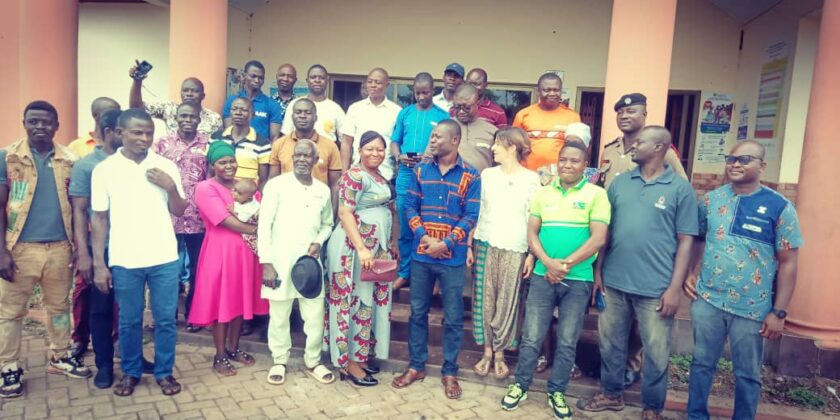 Mr Edward Akunyagra, Project Manager for World Vision Ghana, has called on stakeholders to institute measures and policies to promote sustainable landscape restoration. He said there should be effective coordination and engagement of all relevant stakeholders to ensure the success of interventions and long-term sustainability of landscape restoration to enhance food security in the country.
Mr Edward Akunyagra, Project Manager for World Vision Ghana, has called on stakeholders to institute measures and policies to promote sustainable landscape restoration. He said there should be effective coordination and engagement of all relevant stakeholders to ensure the success of interventions and long-term sustainability of landscape restoration to enhance food security in the country.
Mr Akunyagra made the call during the Northern Ghana Restoration Initiative of district level dialogue with stakeholders on Regreening Africa Project in the Mion District.
The event was to foster a sustainable multi-stakeholder engagement mechanism platform for creating synergies in knowledge.
It was also to improve the enabling environment necessary to restore land health and planting trees to provide fair benefits to communities.
Mr Akunyagra said actors should design and implement strategies and policies that were aligned and coherent with the objectives of Savannah Mosaic Landscapes with its distinctive vegetation, weather, and drivers of degradation and land use rights to increase tree planting, restore land health and community resilience.
He urged opinion and traditional leaders to collaborate with the authorities to enforce the environmental protection laws, especially in the rural areas to enhance regreening of the country.
Madam Gloria Kukuije Adajiga, Research Scientist at Forestry Research Institute of Ghana, advised women to support men in the tree planting exercise on their farms and homes to improve crop yield.
Dr Emilie Smith Duuont, Scientist and Facilitator at World Agroforestry, highlighted some of the achievements of the Regreening Africa Project, saying as part of the project, they had trained more than 1,600 students in 15 basic and senior high schools in the Mion District on sustainable environmental management.
She noted that the project was used to develop business plans for one strategic actor in Mion District to promote the shea value chain to improve their livelihoods.
Mr Philip Atiim, Project Manager at Catholic Relief Services said the project, funded by the European Union, was to create a sustained approach to reversing land degradation and integrating food production through World Agroforestry.
Mr Atiim said the project was being implemented in the Northern and Upper East Regions with other partners, including World Vision Ghana, ICRAF Sahel and National and Local Governments, targeting 90,000 hectares, and 40,000 households.
source:newsghana

